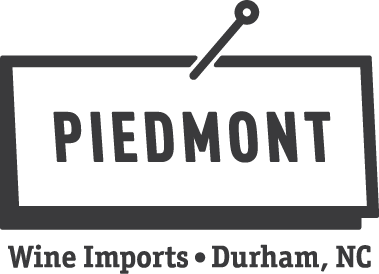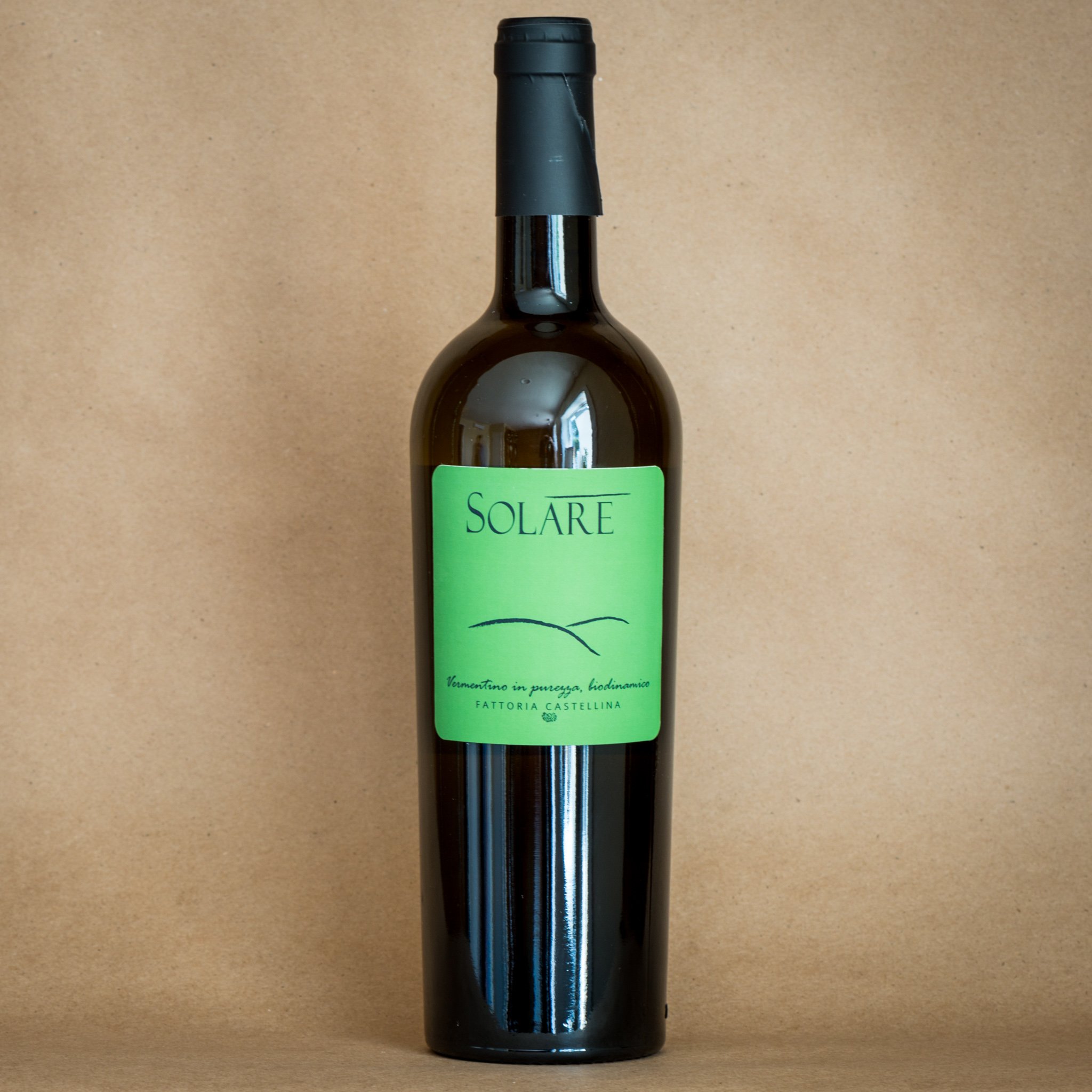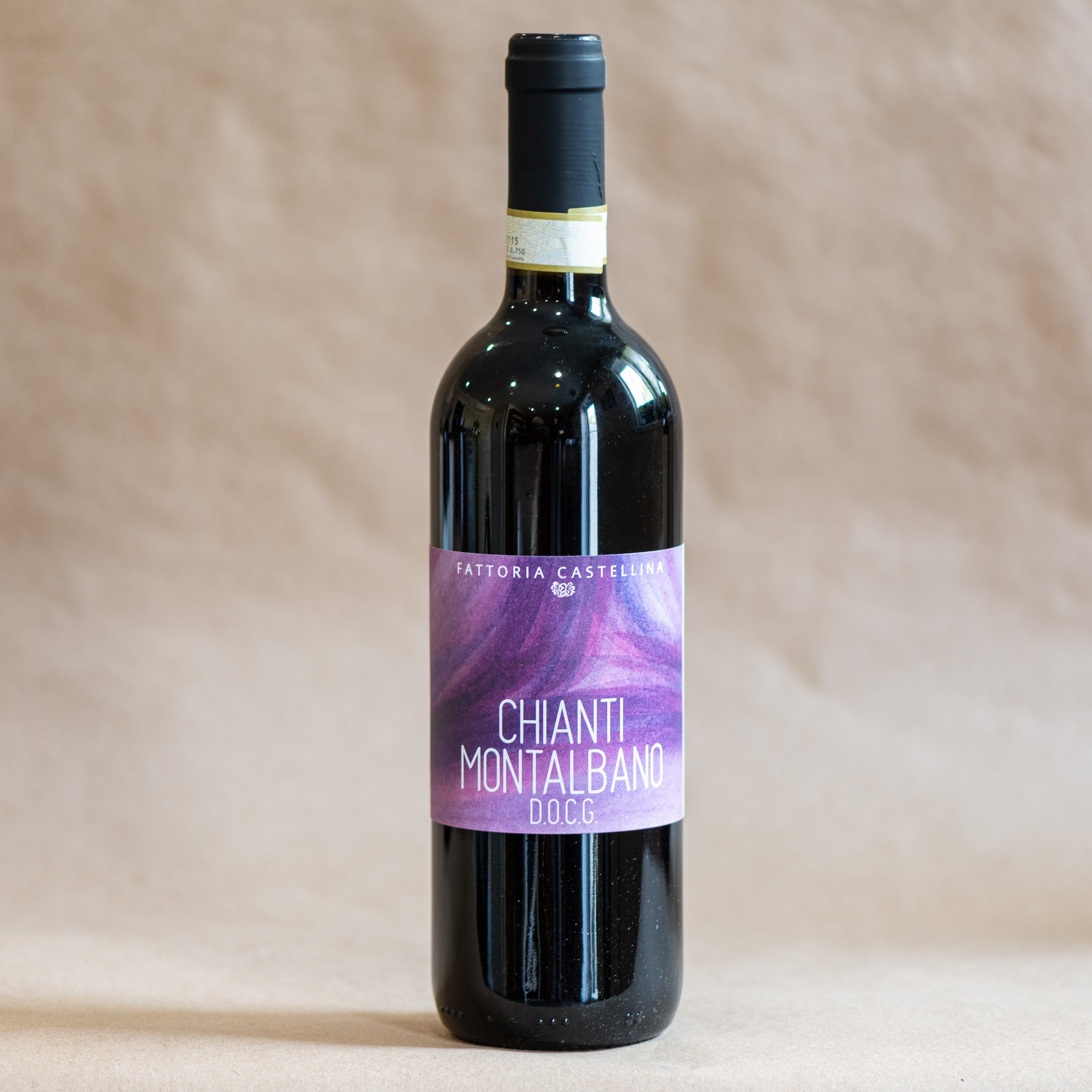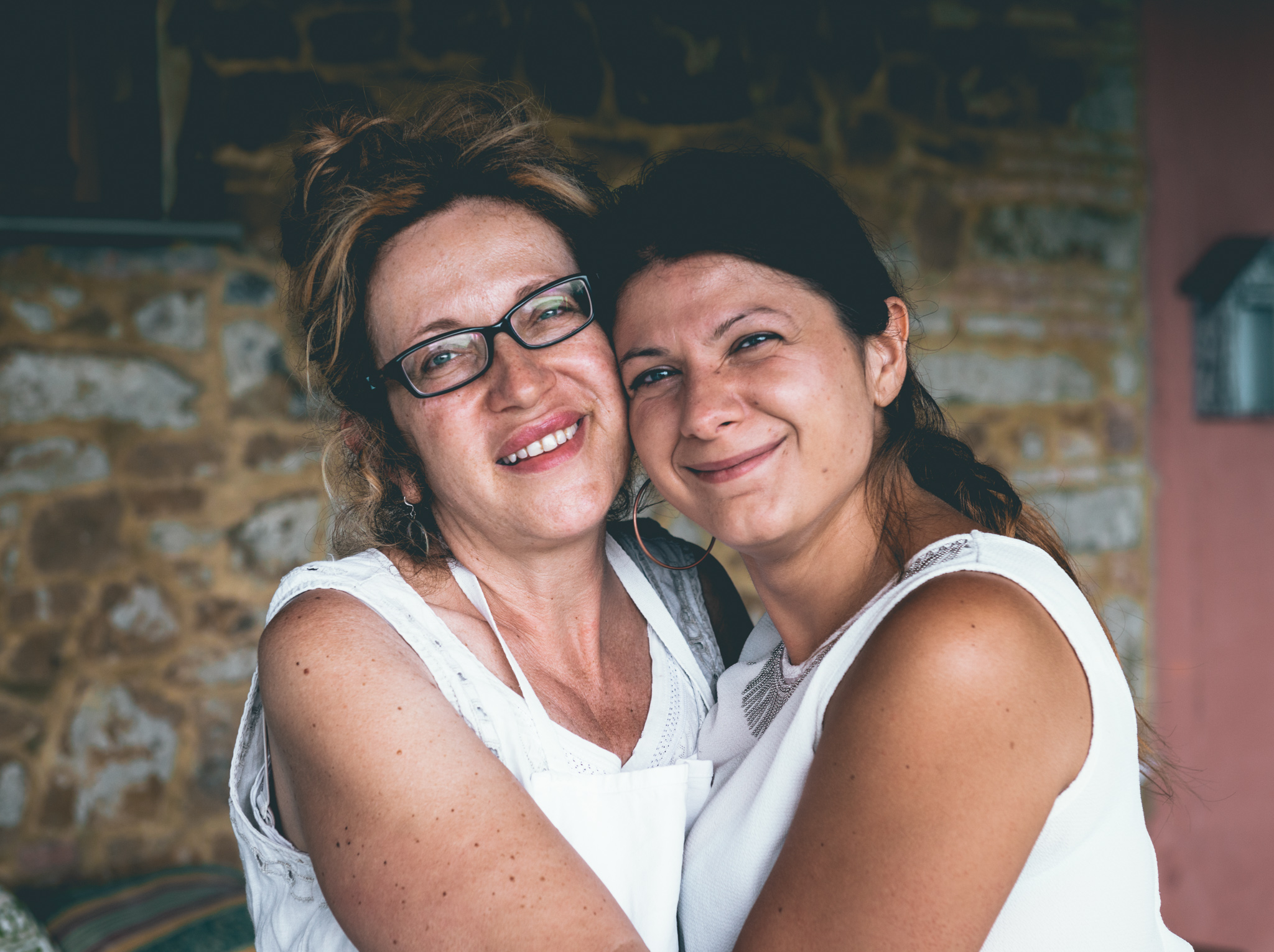
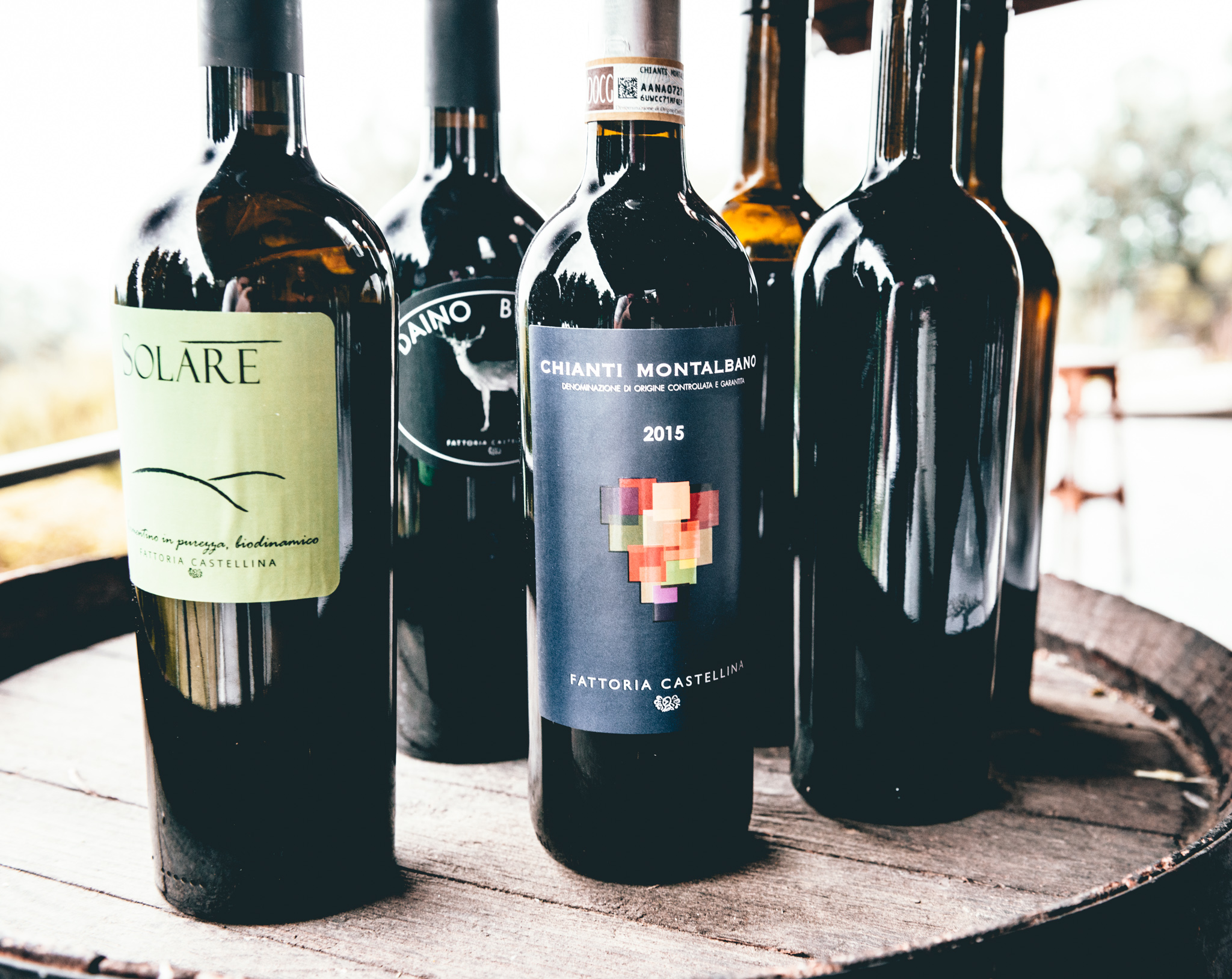
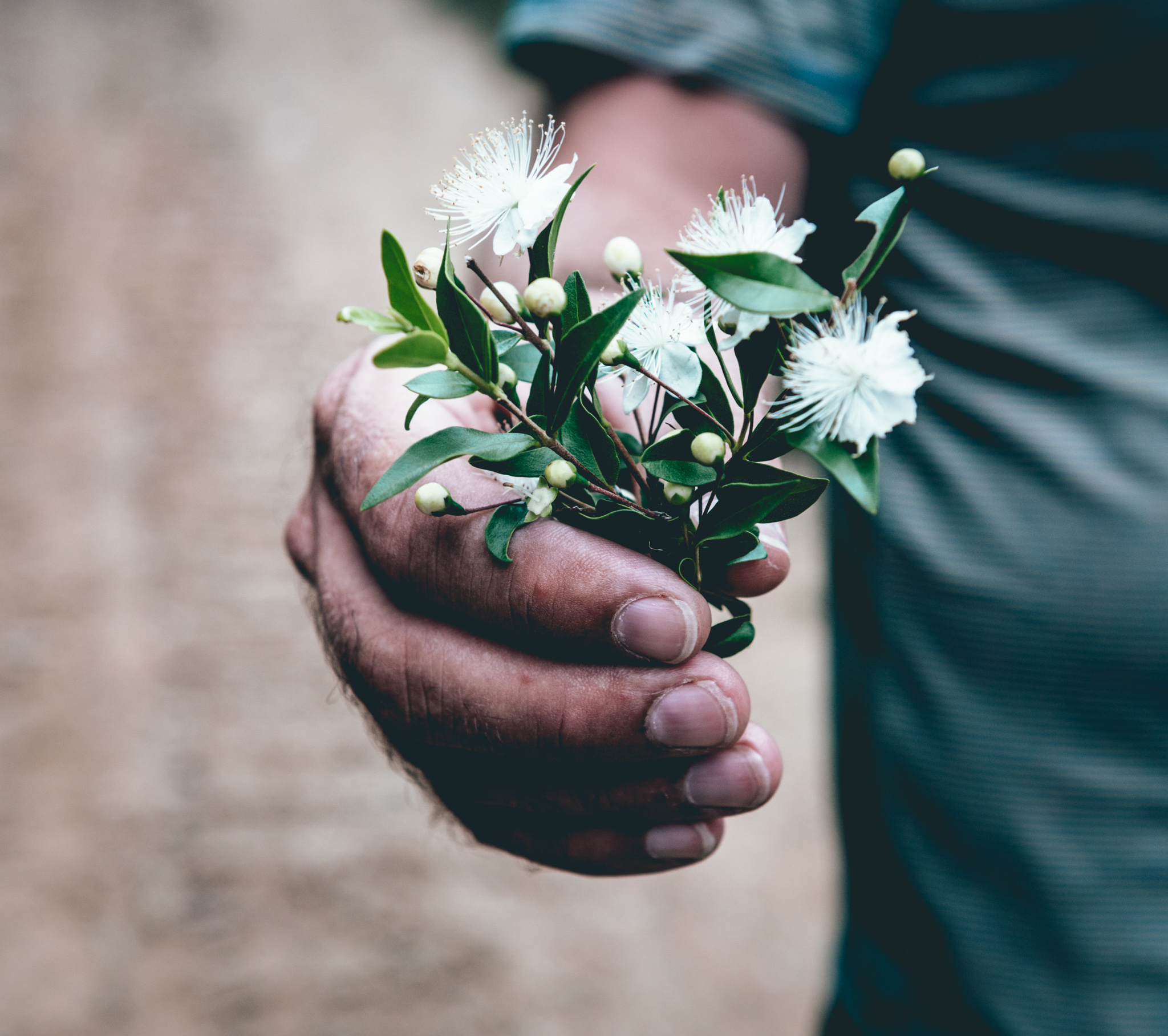
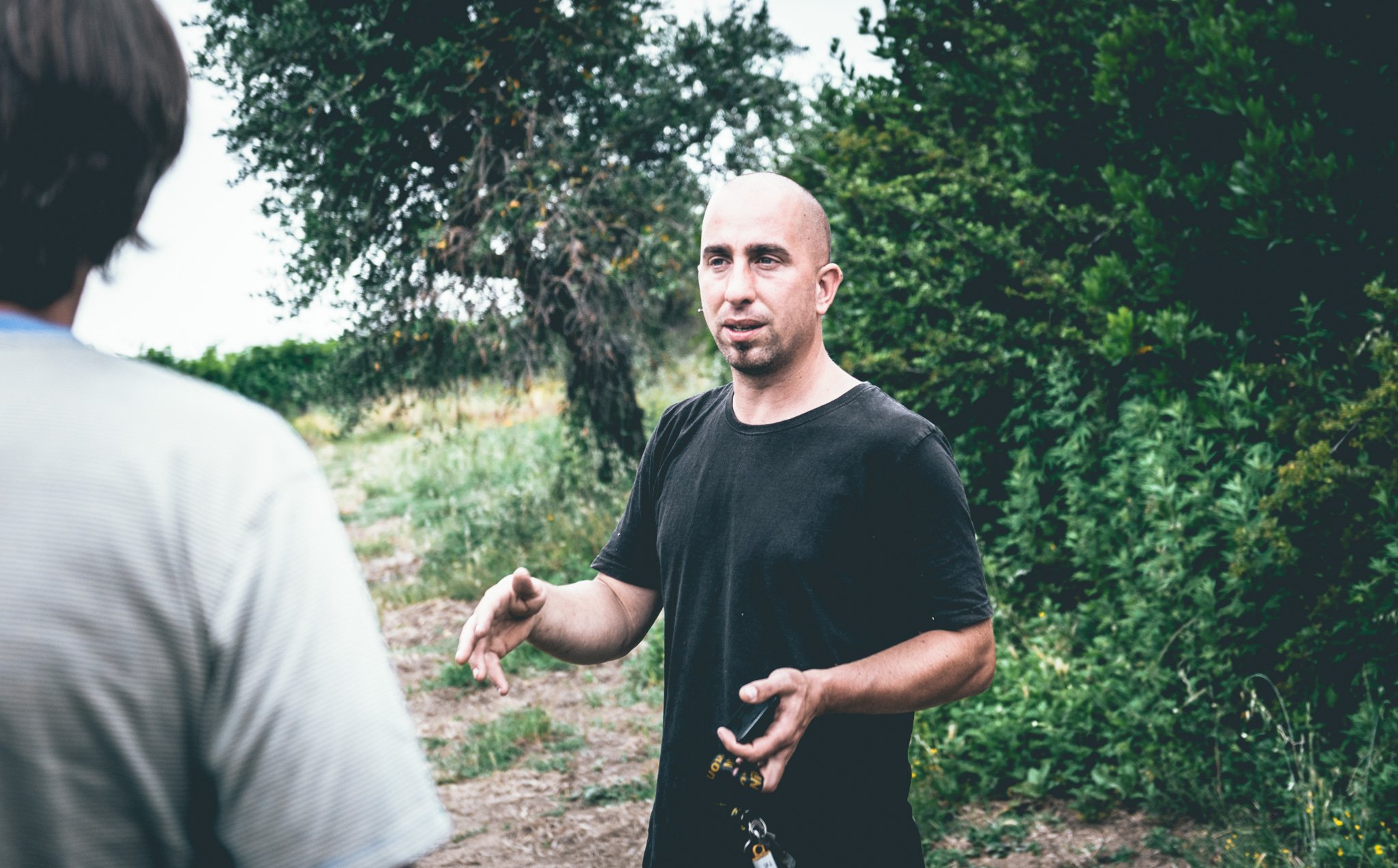
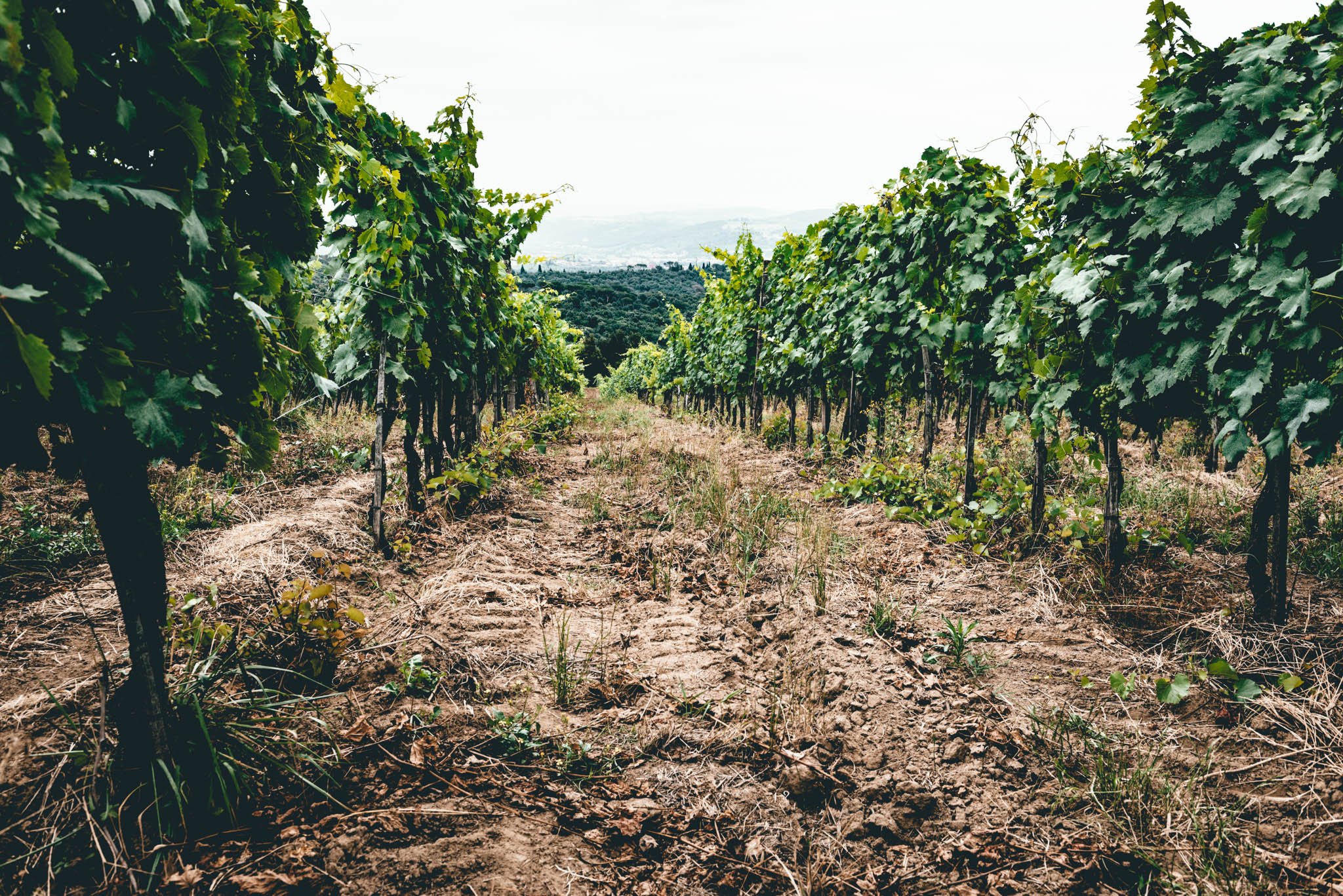
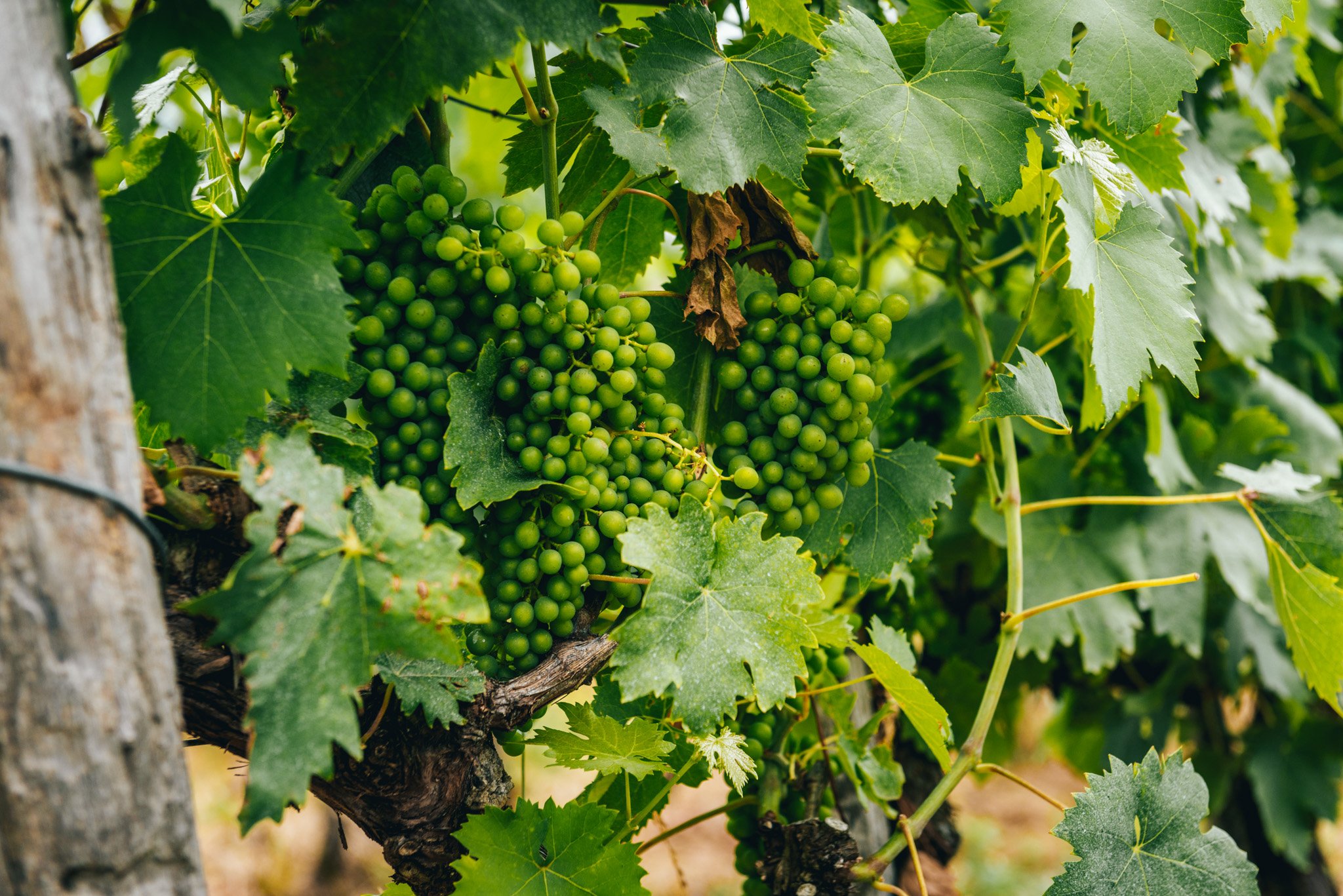
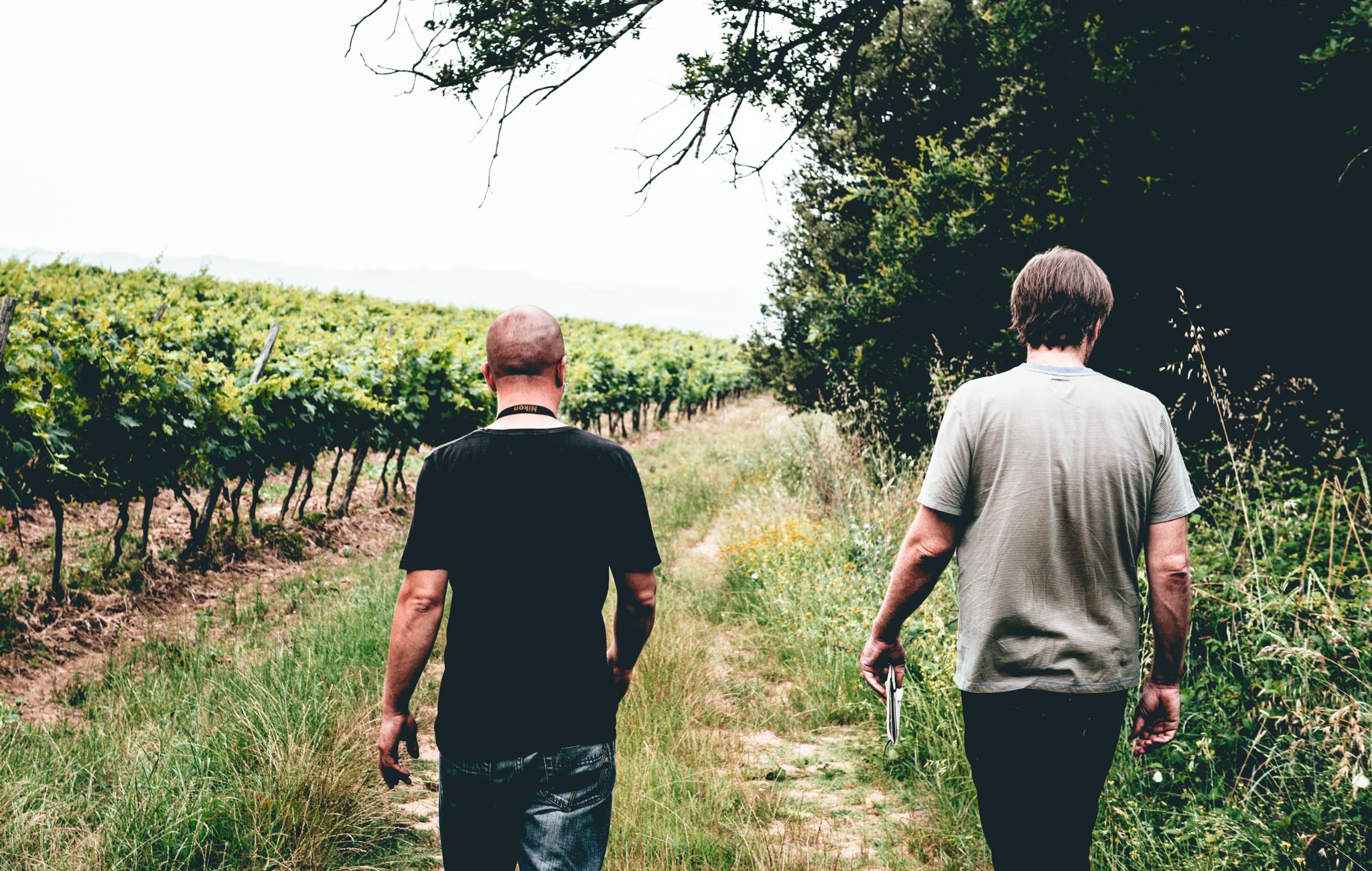
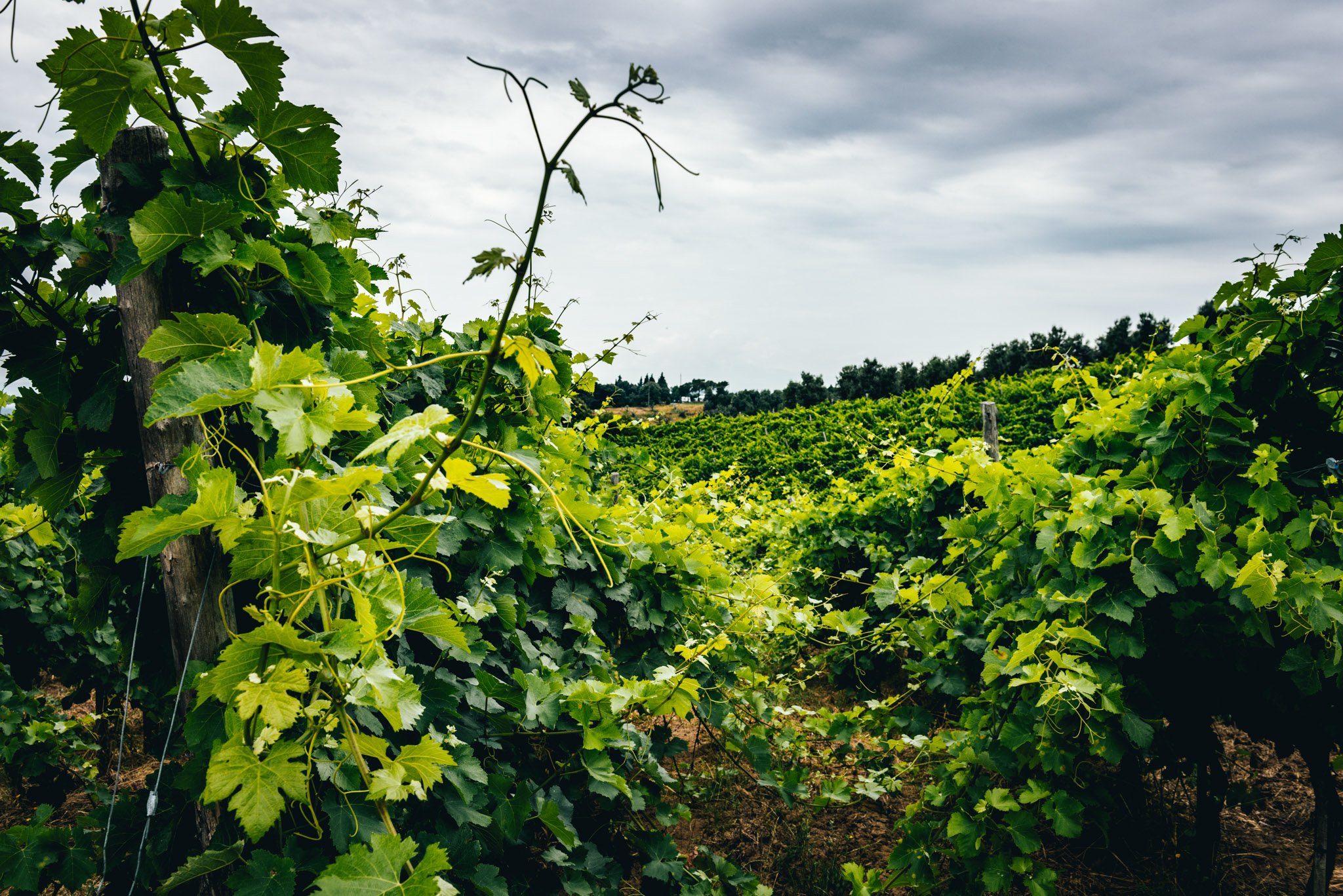
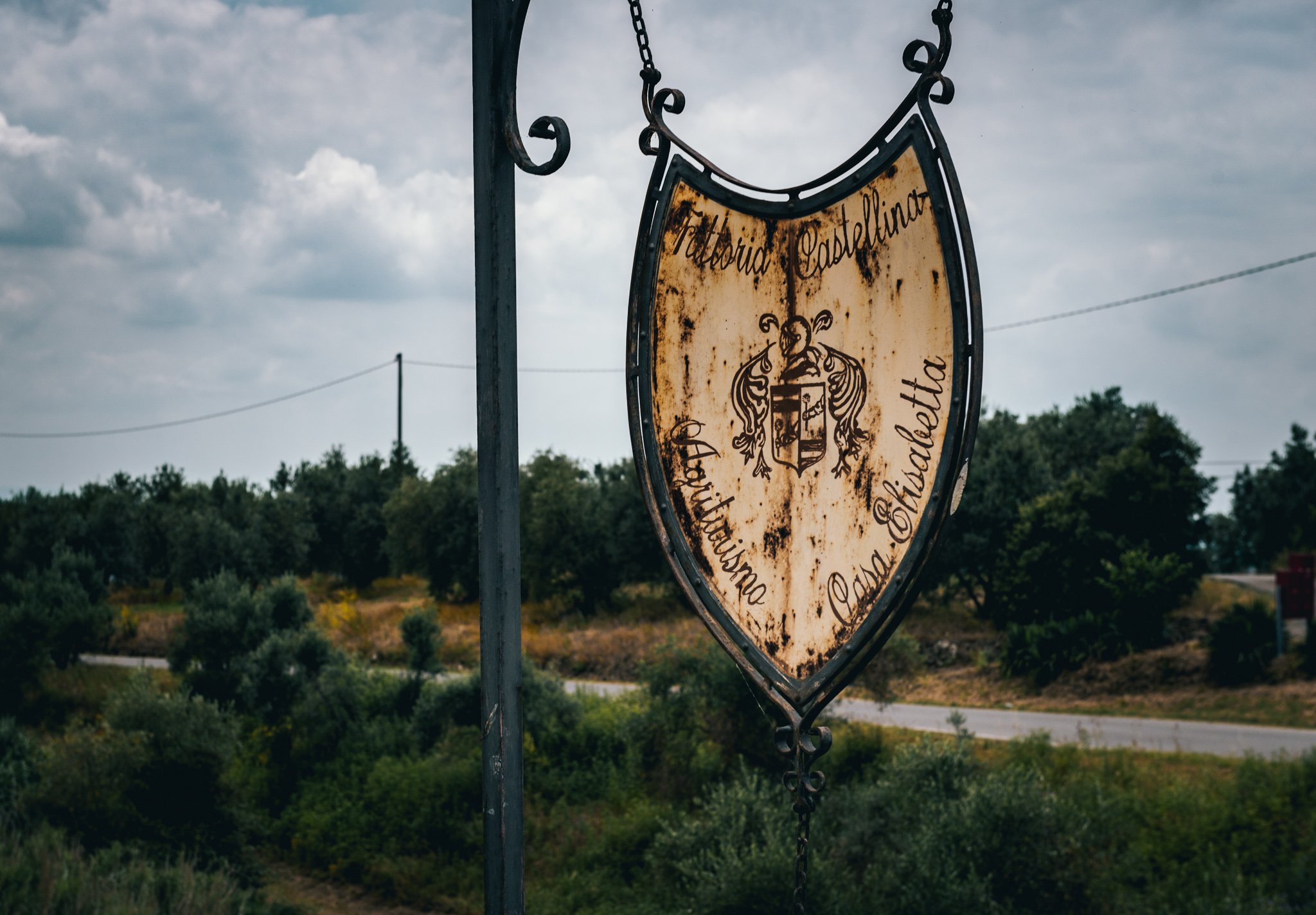
Fattoria Castellina
Who: Maria Elisabetta Mainardi
Where: Capraia e Limite, Chianti Montalbano (Tuscany)
What grapes: Primarily Sangiovese, with Vermentino and small amounts of French Grapes
Key facts: This certified-organic (by IMC) winery uses biodynamic methods including plowing with a horse, and farm fields planted in the old albarello trellising method.
Website: https://www.fattoriacastellina.com
Instagram: @fattoriacastellina
Fattoria Castellina “Solare” Vermentino Bianco Toscano IGT
Viticulture: Certified organic / Biodynamic
Soil type: Sandy-silty with the presence of sandstone skeleton
Elevation: 250m
Grapes: Vermentino
Method of fermentation: Destemming, spontaneous fermentation with about 3 DAYS maceration without temperature check; malolactic fermentation and refinement on fine lees for 6/8 months in steel vat. Bottling without filtration or stabilization.
Years ago, my thumbnail sketch of Fattoria Castellina was, ‘great farming, rustic winemaking.’ Since Francesco and Eleonora became more active on the farm, the cellar work has improved. Today, there is intentionality, vision, and experimentation. There are new tronconic fermenters. Francesco has thoughtful explanations for where the maturing wines are stored. Ten hectoliter cement tanks are common in their cellar. Secondhand barriques purchased from Ornellaia to age reserve wine line a back wall. Solare is the most recent iteration of Castellina’s skin-contact, wild yeast fermented Vermentino. The wine has a coterie of in-house admirers at PWI. Maybe the truth of our 9-year relationship with this exceptional farm is that it’s powered by fandom. Solare makes me swoon. — JM
Fattoria Castellina “Daino Bianco” Rosso Toscano IGT
Viticulture: Certified organic / Biodynamic
Soil type: Sandy-silty with the presence of sandstone skeleton
Elevation: 250m
Grapes: Merlot from a single vineyard (Spiaggia di sotto)
Method of fermentation: Maceration & fermentation for 35/45 days. Malolactic fermentation and maturation in second / third passage French oak barriques for a period of 24 months. Assembled in concrete tanks where it rests for a further year. Refinement in bottle for 1 year.
Bottles Produced: 2,500
2016 Daino Bianco We’re getting a small amount of Fattoria Castellina’s super Tuscan (100% Merlot) for the first time. Samples of this wine have always impressed. Apparently most of the Daino Bianco ends up in Japan. This year we have a small stash to share for special winter meals. The wine spends 60 days on the skins, and 2-3 years in small French barrels. Rich, velvety, definite varietal character. Serve it with roast beef, or porchetta. — JM
Fattoria Castellina Chianti Montalbano DOCG
Viticulture: Certified organic / Biodynamic
Soil type: Sandy-silty with the presence of sandstone skeleton
Elevation: 250m
Grapes: Sangiovese
Method of fermentation: Destemming, spontaneous fermentation with about 15 days maceration. Refinement for 12 months in tonneaux. Bottling without filtration or stabilization. Additional refinement in bottle for 6 months.
Certified biodynamic. 100% Sangiovese. The 2019 is my favorite Sangiovese vintage of the last decade at this beautiful Tuscan estate. There’s nothing to be improved upon. It’s difficult to imagine a better pairing for pasta. The 2019 Chianti Montalbano is quite open. The fruit is dark and remarkably expressive for a young wine. Siblings Eleonora and Francesco are taking Fattoria Castellina to new heights. — JM
Fattoria Castellina winter 2021 update
Driving west from Florence to visit Elisabetta Mainardi and her family at Fattoria Castellina, I feel the influence of the sea. Mainardi’s certified-biodynamic farm is closer to the Uffizi than it is to the leaning tower of Pisa, or the port at Livorno where these wines depart Italy, destination Durham. But the trek west from Firenze brings sea air, sand, and a laconic vibe to everything. The hills at Castellina roll more gently than the low mountains of Chianti Classico. Sea oaks and grasses abound. The vibe from Elisabetta, Fabio, and their children is decidedly chill. They seem to love working bathed in the brilliant sunlight of this decidedly Mediterranean place. Elisabetta and her 28-year-old daughter Eleonora cook rigorously local Tuscan cuisine: dining with them would be an indelible memory, even if they didn’t serve compelling wine.
But the wines are singular.
2018 Solare is the most recent iteration of Castellina’s skin-contact, wild yeast fermented Vermentino, a wine that has more than its fair share of in-house admirers at PWI. Maybe the truth of our 9-year relationship with this exceptional farm is that it’s powered by fandom. At each encounter, the expressive wines created by Fabio’s farming and Ivan Chirico’s steady, noninterventionist cellar work leaves such a strong impression that we are compelled to buy. This vintage of Solare has ripe lychee and persimmon aromas, plus a little lemon. The texture is nervy, bright. Solare is unfiltered. It macerates on the skins for four days prior to fermentation. Orange wine fans will be into this, so will admirers of ripe Sardinian and Corsican bottles.
A ridiculously small amount of 2018 Chianti Montalbano is coming to North Carolina. Don’t wait to order this one. The wine is grown in a rocky, sandy place, and it shows. It’s lower in total acidity than your average Chianti Classico, and tastes more sun exposed: in a word, Mediterranean. Clean, lots of cherry fruit. Castellina’s Chianti Montalbano is picked in mid-September, and aged in a mix of large wood barrels and cement. Mainardi pointed out that all of Castellina’s reds are low in added sulfur. “Sulphites take oxygen off your brain, and give you a headache.” She states. I’m not sure about the science. But I know this is a wine that has me feeling good during (and after) imbibing.
2016 Daino Bianco We’re getting a small amount of Fattoria Castellina’s super Tuscan (100% Merlot) for the first time. Samples of this wine have always impressed. Apparently most of the Daino Bianco ends up in Japan. This year we have a small stash to share for special winter meals. The wine spends 60 days on the skins, and 2-3 years in small French barrels. Rich, velvety, definite varietal character. Serve it with roast beef, or porchetta.
